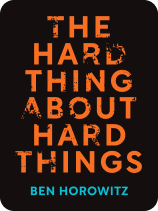

This article is an excerpt from the Shortform book guide to "The Hard Thing About Hard Things" by Ben Horowitz. Shortform has the world's best summaries and analyses of books you should be reading.
Like this article? Sign up for a free trial here .
Do you know how to hire employees that suit your company? What should you look for in a prospective hire? How do you train that new employee?
When you hire a new employee, hire for their strengths, not their lack of weaknesses. They must have the right kind of ambition and show interest in how they can improve the company, not just in their compensation.
Continue reading for more advice on how to hire employees and properly train them.
How to Hire Employees
Every company wants to hire the best people they can find. General advice:
- Hire for strength, not for lack of weakness. You need people to do their jobs, not be inoffensive office fixtures that do little.
- Focus on the ultimate goal—how many productive people have you added? Don’t just fixate on narrow metrics like interviews conducted and hires made.
Hiring the Right Kind of Ambition
Ambition comes in two flavors. The wrong kind of ambition emphasizes a person’s personal success regardless of the company’s success. The right kind of ambition emphasizes the company’s success, with the person’s success coming only as a consequence.
Hiring people with the wrong kind of ambition pollutes the company. These people are demotivating to work for—why work endless hours just to further the manager’s personal career? In contrast, working alongside people with the right kind of ambition is invigorating—everyone is working toward a mission that is larger than themselves.
You can screen for ambition in the interview process. People with the wrong kind of ambition do these things:
- They use “I” when talking about successes, and “we” when talking about failures. When you probe further into successes, they often know little about the actual details.
- They care about their personal compensation above details on how the company will win.
- They talk about their career work in terms of personal stepping stones, such as “this was my consumer play” or “I wanted to build out my resume.”
People with the right kind of ambition do the opposite:
- They use “we” when talking about successes and “I” when talking about mistakes/failures. They know minute details about how successes were achieved. They blame themselves for team mistakes.
- They ask first about how the company plans to win. Their personal compensation comes second.
Hiring from a Friend’s Company
You likely have friends who run other companies that employ very talented people. You likely both have an unsaid agreement that you shouldn’t actively poach each other’s employees.
But in practice, the more realistic situation is that your friend’s employee seeks you out without your company’s solicitation. This person interviews well and is a real standout, and you want to make an offer. What do you do?
It’s a trickier situation than on the surface. Realize that employees mainly leave when something is not going well; your friend’s company may be on life support, and your hiring a star employee may take away a key resource your friend needs at her weakest moment. Even worse, other employees at your friend’s company might see the defection and get the same idea, causing a vicious cycle.
Some people justify this with, “If her company is leaking employees, wouldn’t she rather the employees go to a friend?” This doesn’t compute as well as you think. Consider this analogy—if your spouse were leaving you, would you want him or her dating your close friend?
Here’s how Ben Horowitz, author of The Hard Thing About Hard Things, advises you deal with the situation:
- If you would feel betrayed if a particular company hired any of your employees, you should not hire any of theirs. Make a list of such companies (it should be a small one) and require that before any team hires a person from this list, you need to give approval first.
- If a prospective hire from this list of companies reaches the final round, tell him that you’ll be calling your friend his current employer before making this hire. If he doesn’t want this to happen, you can stop the hiring process and keep it confidential.
- Talk to your friend before making an offer and get her OK.
New Employee Training
Training is one of the most valuable activities a company can do. It is wonderfully high-leverage—each person spends 2,000 hours per year working for your company. Say you spend ten hours to train a group of ten people, who collectively work 20,000 hours per year; if you improve their performance by 1%, you have converted 10 hours of your time into 200 hours of extra team productivity.
Many companies think that since they hire such smart people, training isn’t necessary, that they’ll figure it out themselves. This is woefully misguided and a wasted opportunity. Companies also think that they don’t have time for training, but this is also short-sighted. Training is the very thing that makes people productive, so it is the first thing to prioritize.
There are two types of training in a company: functional training, which provides the knowledge and skills to do the job, and management training, which trains managers to manage their teams.
Functional Training
In general, functional training should do the following:
- Make clear the expectations of the job and how the worker will be evaluated.
- Introduce the worker to the materials and systems she’ll be working with. (For example, a software engineer will need an introduction to the product, code base, and coding practices.)
- Draw from the best functional experts on the team. Make training an honorable and respected job in the company, rather than grunt work.
Beyond these generalities, functional training should be customized to the job that needs to be done.
- While leading a product management team at Netscape, Horowitz discovered that everyone had a different understanding of what the product manager role was. He wrote a document called “Good Product Manager/Bad Product Manager” that made expectations clear. For example, good product managers figure out what customers want; bad product managers focus on matching competitive features and focus on how to implement them.
Functional training should be a mandatory component of all teams in the company. You can enforce this by denying their requests for more people until you validate their training program. Likewise, for new employees, training should also be mandatory before they can start doing work.
Management Training
Management training prepares managers to lead their teams. It should do the following:
- Make clear what tasks managers should be doing, such as one-on-one meetings, performance feedback, training, and goal setting. You should be the person teaching this course and setting these expectations.
- Train managers on how to accomplish these tasks (for example, how to run a one-on-one meeting).
- Enlist the best managers to teach the courses.

———End of Preview———
Like what you just read? Read the rest of the world's best book summary and analysis of Ben Horowitz's "The Hard Thing About Hard Things" at Shortform .
Here's what you'll find in our full The Hard Thing About Hard Things summary :
- What it was like to head a company through the dotcom bubble and subsequent burst
- Why failing is normal
- How to build a good place to work






